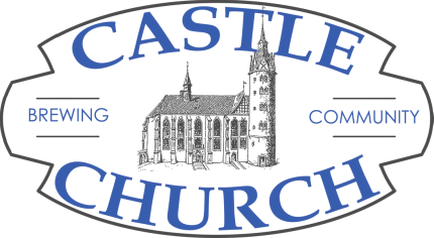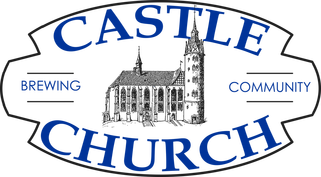|
Jared Witt - July 16, 2018 “The king was deeply grieved; yet out of regard for his oaths and for the guests, he did not want to refuse her.” – Mark 6:26 Have a look at Mark 6:14-29, the Beheading of John the Baptist at the hands of King Herod Antipas. Now answer this question: what is Herod’s major character flaw. When I was a little kid, I was taught that Herod (I didn’t know that there were several of them) was just a moral black hole, raw evil, more a prop for Satan than a person. In many ways, that made his character very dismissible. We don’t really have to wrestle with what went wrong in the case of old Herod, if we assume on the outset that he he is just flatly evil without exception. A character like that is not very helpful in a real world of moral complexity, where very few people just wake up in the morning and set out to do evil stuff, and yet we’re left to figure out why a bunch of bad stuff still happens.
Instead, what we have in the real world are a lot of people who fear for the safety of their families and so develop an idolatrous relationship with guns and militaries; people who are anxious over their job security and so unfairly demonize odd scapegoats; people who feel helpless in the face of so much apocalyptic activism and so become heedless about their consumer decisions; politicians and business execs who are torn between what they know they should do and the bottom line demands of their campaign contributors and shareholders. In short, we have a lot of people who are trying to be good, but they’re trying to do so against a backdrop of conflicting pressures and incentives. That more complex situation, by the way, is the deeper meaning to which the commonly bandied word “sin” actually points. And the net result of all these mixed motivations, unspoken anxieties, and tribal allegiances—as anyone with an adult moral worldview knows—is that, other than a few small underground groups of Satanists, whose silly existence is the exception that proves the rule, people don’t usually do evil in the name of evil. We usually do evil in the name of good. A true believer Nazi is quite puzzled when you tell him that he believes in something evil. He believes it’s quite good. He wants a brighter, cleaner, happier, more prosperous world, just like any of us. And if I’d stuck with the interpretation of the Bible that was first taught to me in Sunday school, that it’s a black and white story of heroes (e.g. Joseph) and villains (e.g. Herod), then I would have to conclude now that the Bible doesn’t have very much useful to say about my world. In the popular model of preaching that we were taught in seminary, we learned that a good biblical sermon has all of these four elements: Problem in the Bible Problem in the world Gospel in the Bible Gospel in the world You can see pretty easily what a non-sequitur the whole thing becomes if the problem in the Bible is as simplistic and wooden as “Herod wanted to kill John because some people are bad.” But in the world, leaders don’t start killing off (or quietly removing) the opposition because they intend to be bad. They start killing off the opposition because their power is based on ill-advised promises and backroom handshakes, for which they now need something to show; because they first rose to power by harnessing negative energies of undirected anger, and now periodically, their support base requires sacrifices to show that the danger is being addressed; because safety becomes an idolatrous value and justifies any violence; because half-truths now need to be covered up with complete untruths, and self-preservation takes over all other goals; because absolute power corrupts absolutely; and a whole slew of other complex progressions that can all be spun in one way or another as the responsible actions of a strong man or party who only want the best for the people they're charged to protect. The disconnect between simplistic biblical interpretation and complex world only leaves the reader one of two options: (1) to write off the Bible as a childish notion, with nothing to add to our analysis of the human problem that hasn’t long been surpassed by The New Yorker and The Economist (this is the path that most on the left have taken), or (2) double down and try to make the complex global landscape fit the simplistic Bible map (this is the path that most on the religious right have taken). But over and over again, if I grow up a little bit and neither write off the Bible nor read it through childish eyes, I find it tells a far more complex story. Read Mark 6:14-29 again, if you need to. Is Herod’s character flaw really that he is just a baddy who likes doing bad things? Are you sure? Ancient writing doesn’t always spell out a character’s internal struggles and motivations in the way of modern literature. But in this case, we get some good insight. “The king was deeply grieved; yet out of regard for his oaths and for the guests, he did not want to refuse her.” Herod Antipas doesn’t want to be known as evil. He wants to be liked. Here you have a man as intoxicated on his public image as he is on wine. His personal tragedy, if we fill in a little historical backstory, is that one can’t earn the approval of one’s father posthumously (his father, Herod the Great, the last of the family to be titled king, was beloved by Jewish elites for undergoing a massive building project in and around the temple and putting it on the map as cultural monuments go) so he has an infinite appetite for public praise, even if it’s ultimately an unsatisfying substitute for the one little “attaboy” which he craves most but will never get. This gives a transparent hue of insecurity to all of his obsessive building projects and his feather preening in the public spotlight. And for all of the wonderful things he’s built for the people, so what if he has a little fun in his private life? He is a man after all. A man of means. A man of gravitas. And when a man of gravitas likes something he sees, he grabs it—in this case, the wife of his brother Philip. It was a furtive dalliance at first, but gradually became more and more shameless as he discovered that, with access to the finest legal representation and a bit of cash budgeted away for the periodic settlements, one really can live free of consequences. And then comes along this oddball John, a man who probably has not two drachmas to rub together. But he can’t be ignored. Apparently, he has some sort of following among the hoi polloi, who call him “the Baptist,” and little enough decorum to actually call this thing what it is. Unbelievable. Years of tremendous accomplishments, diminished by some hermit. Still, such things need to be dismissed quietly or you’ll have a riot on your hands. Send out a counter-narrative to the media. Dig up some dirt. Call his credibility into question. It’ll blow over in a few weeks. Obviously, it was only meant as a lark at his birthday feast when the girl came out and danced for him and he offered her, “Whatever you ask, up to half my kingdom.” The boys had a good laugh at that one. Suave stepfather move. Buy the kid’s love and look generous in the eyes of the mother, besides. Anyway, she really is a rather comely girl. Give her visions of herself wearing a crown now, and perhaps in a few years, when her mother has started to sag and wrinkle a bit… Anyway, she was supposed to ask for a pony or something. What kind of a little girl doesn’t want a pony!? The head of John the Baptist? What rubbish is that woman feeding into her head? The girl doesn’t even know what she’s saying. The catch-22 was immediately obvious to everyone. All of them staring at him. The more cheeky of his fellows giving a little smirk. The words of his deceased father echoing in his ears, “You’ll never grow up, will you Antipas. Everything is a joke. And that is why, I’ve decided, you’ll be dividing up the kingdom you would’ve inherited with your more serious-minded brothers.” No. He can’t back down. Herod Antipas may be a lot of things, but he’s not one of these weak-kneed politicians who endlessly discuss the issues but suddenly start to hem and haw when the moment comes for tough and decisive action. Herod Antipas is a man who follows through on his word. Bluff on this and they’ll start calling your bluff on everything. A tough man. A serious man. Like his father, whom they called “the Great.” “Bring me John’s head on a platter immediately.” And so a story that has been stilled and framed countless times on Sunday school felt board as a simple bad villain vs. good hero trope, is in fact a deeply complex moral saga. But it’s just a Bible story. Probably not relevant to today. I dunno. Cheers and Peace, Jared |
Mashing in.On how Castle Church is stirring up a movement from a brewery in Florida. Archives
July 2018
|
Curated selection
- UK Online Casinos Not On Gamstop
- UK Online Casinos Not On Gamstop
- Casino Sites Not On Gamstop
- Best Non Gamstop Casinos UK 2025
- Casino Sites Not On Gamstop
- UK Online Casinos Not On Gamstop
- Non Gamstop Casinos UK
- Non Gamstop Casino Sites UK
- UK Casino Not On Gamstop
- Best Non Gamstop Casinos
- Online Casinos
- UK Casino Not On Gamstop
- Non Gamstop Casino
- Gambling Sites Not On Gamstop
- Migliore Casino Non Aams
- List Of UK Casino Sites
- UK Casinos Not On Gamstop
- Gambling Sites Not On Gamstop
- Best Non Gamstop Casinos
- Casino Not On Gamstop
- Betting Sites
- Non Aams Casino
- Migliori Siti Casino Non Aams
- Non Gamstop Casino
- Casino En Ligne
- Bitcoin Casinos
- Meilleur Site Casino En Ligne Belgique
- Meilleur Casino En Ligne Avis
- Site De Paris Sportif Bonus
- Paris Sportif Ufc Mma
- Siti Di Casino Online 2026
- Meilleur Casino En Ligne
- Casino En Ligne
- 50 Free Spin Senza Deposito
- Migliori Casino Online
- Meilleur Casino En Ligne France
- Nuovi Casino Non Aams
- Nouveau Casino En Ligne France
- Migliori Siti Casino Online
- Trusted Online Casino Malaysia

 RSS Feed
RSS Feed




